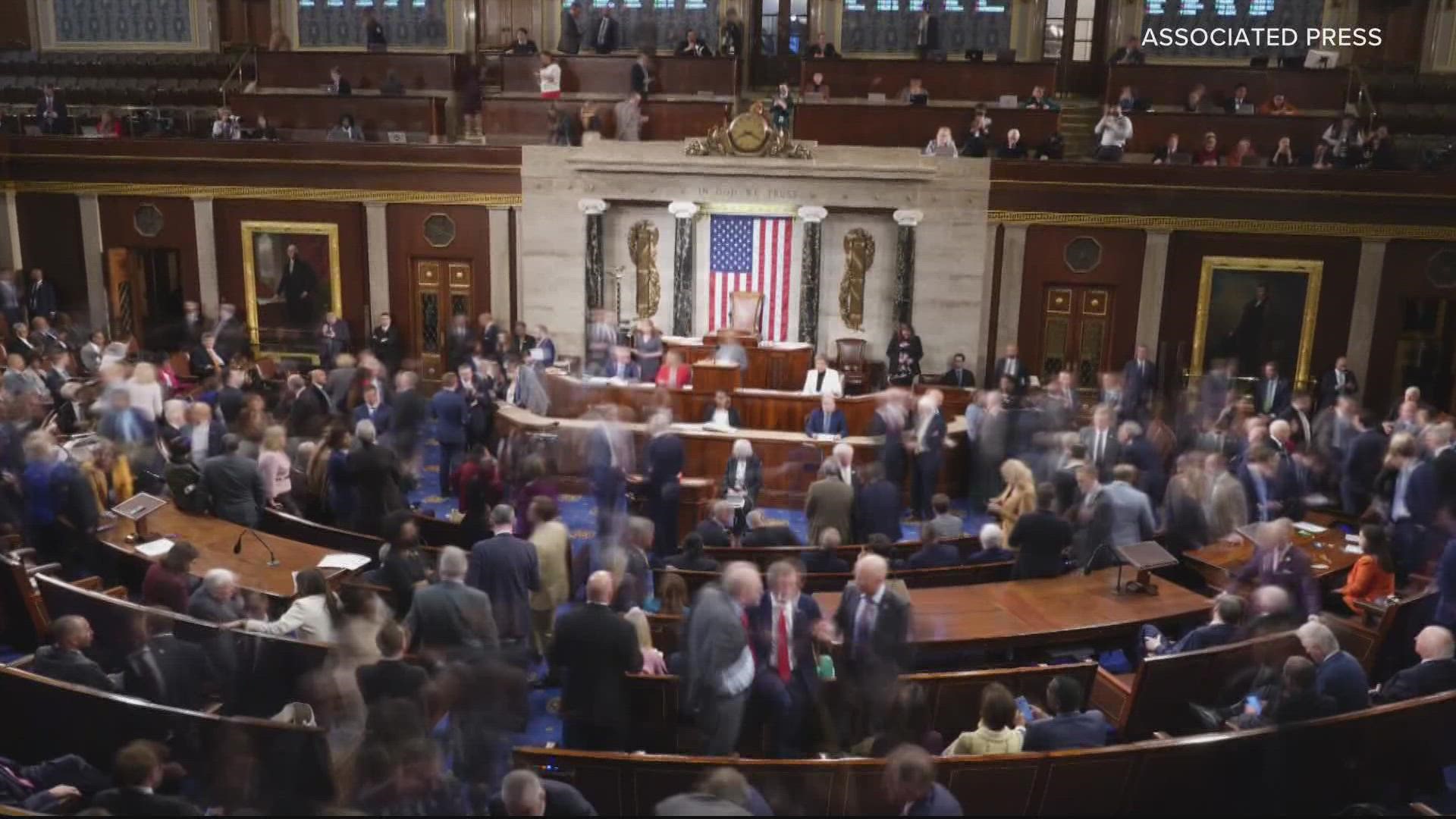WASHINGTON — When the Republican party comes to the Capitol for work Thursday, they will likely be wrestling quite a few questions as they determine how to move forward from this speaker standoff. It has led to a lot of questions — and possible answers — from their constituents across the country waiting for Congress to even be able to begin doing its job.
THE QUESTION:
What happened last time the House couldn’t immediately agree on a Speaker, and can they expand their list of options?
THE ANSWER:
It’s been a century since representatives had to cast multiple ballots for Speaker of the House. When that happens, they must continue voting until they can agree on someone, and that someone doesn’t even have to be a member.
WHAT WE FOUND:
Thursday could have been day three of business for the 118th Congress of the United States, but instead, they are still focused on figuring out who is running things.
That’s after the presumptive choice for the job of Speaker, California Republican Kevin McCarthy, failed to earn enough votes from his majority party again Wednesday, so it’s on to a seventh ballot.
This is the first time in a century that the House majority party couldn’t agree on a pick for speaker on first vote. It last happened exactly 100 years ago, in 1923. It took nine ballots that go-round.
The House will reconvene Thursday at six ballots already. That is nowhere near the 133 ballots voted in the longest battle for the gavel in history. That was in 1855, dragging out for two months, debates foreshadowing the Civil War.
Hoping to avoid a similar situation, pundits and politicians have floated names of some options for Speaker of the House who aren’t even members of the House. Turns out, yes, they’d be allowed to do the job.
A speaker does not have to be a currently elected member of Congress. Article I, Section II of the Constitution merely says: “The House of Representatives shall chuse (sic) their Speaker and other Officers.”
This Congressional Research Service Report says more plainly: "Members are not required to vote for one of the candidates nominated by each major party (or even for some other candidate formally nominated on the floor).”
Historically, nobody who’s not a member of the House has ever served as Speaker, though some have picked up votes.
However many votes it takes, and whomever is ultimately selected, matters, as picking the Speaker is not a step Congress can skip — it is required before they can even swear in members.

